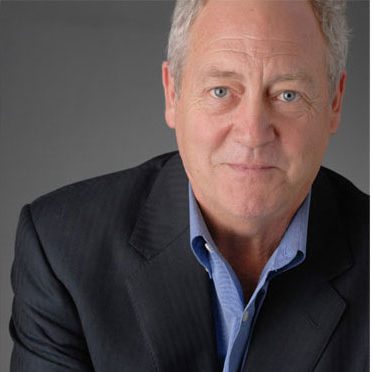Green acitivist crosses nuclear divide
Published: February 5, 2008
Published: February 5, 2008
Appeared on Page A1
Dr. Patrick Moore is somewhat of a divisive figure in environmental policy circles. He was a founding member of the now-international group Greenpeace, and today speaks on behalf of organizations that are at odds with Greenpeace policies.
Moore, who regularly emphasizes his previous involvement with the activist group, will be in New Brunswick this week to speak with university students and business groups to promote the use of nuclear power.
The chief scientist of environmental consulting firm Greenspirit Technologies will arrive today in a province engaged in fractious debate over the utility of a second nuclear reactor and uranium mining efforts. Two consultant reports now support the Liberal government’s nuclear ambitions at Point Lepreau, and uranium exploration efforts have reached unprecedented levels, thanks to record high prices for the heavy metal.
Both of these developments have come with considerable opposition. Ironically, Moore, who will speak on behalf of the New Brunswick branch of the activist group North American Young Generation in Nuclear, has represented both sides of the debate.
In fact, he was in Saint John in the late 1970s to attend a rally in protest of Canadian shipments of uranium to the then-military dictatorship of Argentina. The uranium was officially for energy use, but the fear was the governing Junta would use the metal for making weapons.
Speaking from New York City, where he met with members of a coalition of business and labour groups that advocates on behalf of power plants, Moore said yesterday the Saint John rally was not an ideal political move.
“In retrospect, that was probably misguided. I’m not in favour of the Junta, but even the Junta should be using clean energy.”
Moore now argues nuclear reactors are some of the best alternatives to fossil fuel-burning power plants. He says solar and wind energy sources can only supplement major “green” sources, including hydro and nuclear.
“We all need food, energy and materials every day, and it has to come from the environment. And to me, the challenge is getting the food, energy and materials while at the same time reducing our negative environmental impact.”
Moore’s comments represent a major shift from his activist days in the 1970s, when he helped found Greenpeace and later draft its “Declaration of Interdependence.”
“We have arrived at a place in history where decisive action must be taken to avoid a general environmental disaster,” reads the document, published in the winter 1976-77 issue of Greenpeace Chronicles.
“With nuclear reactors proliferating and over 900 species on the endangered list, there can be no further delay or our children will be denied their future.”
Looking back to that period, Moore said he made the mistake of combining concerns with nuclear energy and nuclear weapons. The former, he said, is an ideal source of power generation with no scientifically proven threat to public health, while the latter is a dangerous source of destruction.
“We made a mistake in not differentiating between the beneficial and peaceful uses of the technology and the military uses,” he said.
Moore said he left Greenpeace in the mid-1980s after he became disenfranchised with several of the group’s policies and what he calls a confrontational form of politics.
At that point, Moore said he chose to become part of an effort that is not motivated by opposition to perceived environmental threats, but by creating solutions to today’s environmental challenges.
But as Moore travels the continent, speaking in support of nuclear power and other divisive issues — including a robust cutting program for the Boreal Forests — the people who represent the organization he helped form perceive him with cynicism.
Bruce Cox, executive director of Greenpeace Canada, said Moore’s current opinions appear motivated by the interests of the organizations he represents, rather than the environment.
“He’s a paid industry lobbyist who says nuclear is a green option,” said Cox. “Try to find one environmentalist who says it’s a green option. It is dirty from the mine head all the way to the waste that we don’t know how to deal with.”
Moore chalked those comments up to name-calling. He said Greenspirit chooses its clients, and is now working with nuclear power industry groups because “we feel it’s important.”
“I’ve been working with the environment all my life, ever since I finished my PhD in ecology; I have another PhD in science and I’ve got a bachelor of science in biology and forestry,” he noted. “I think I have myself sufficiently credentialed to be able to be judged on the merits of my arguments, rather than who is buying my dinner for me.”

